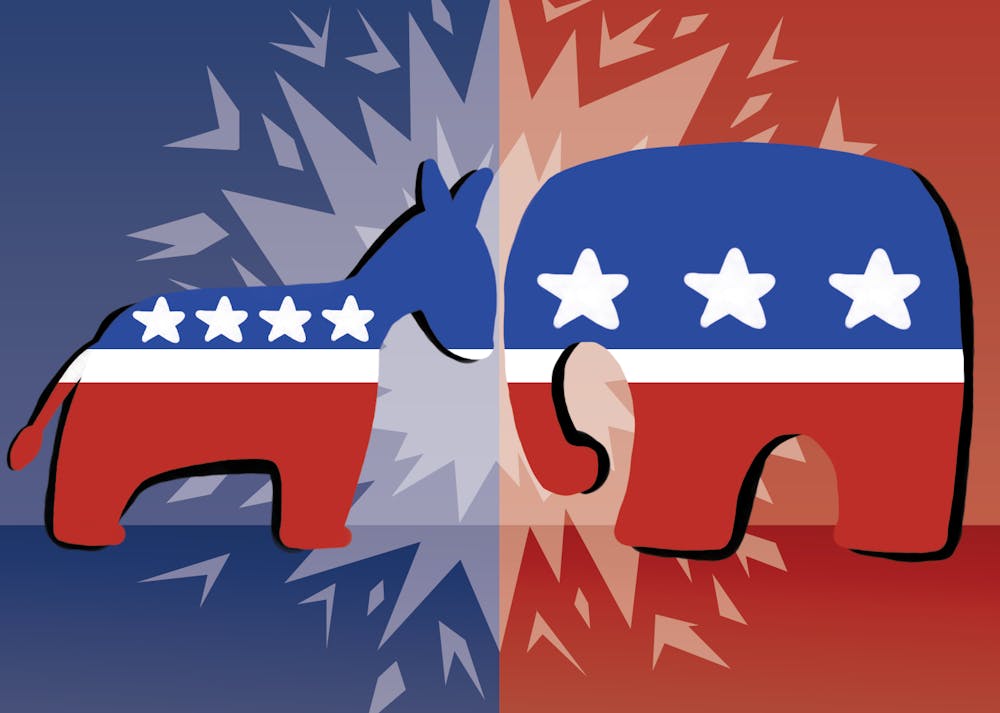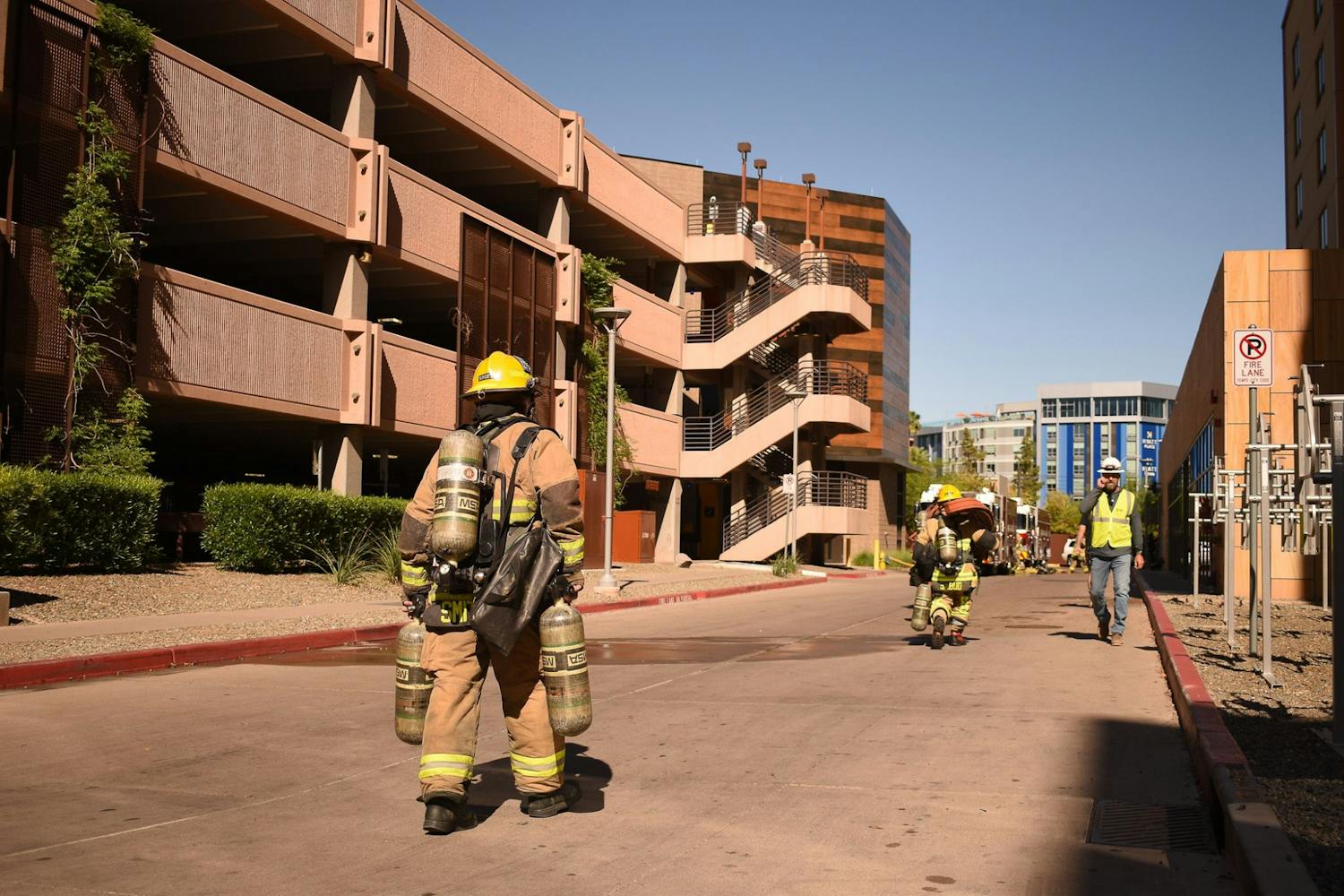In the fast-paced world of politics, campaigns move in and out, leaving little time to reflect on any campaign that didn't win because there is already another candidate waiting to take their place.
However, it is important to slow down in politics and take time to analyze failures and successes in campaigns when they are over. These campaigns can help create better success for future campaigns, leading to sustainable progress in parties.
During the excitement of the 2020 election cycle, I had the opportunity to work on two different Democratic campaigns, Hiral Tipirneni’s campaign for Congress and Mission for Arizona, which helped elect Sen. Mark Kelly and President Joe Biden.
I frequently get asked about Kelly's campaign, but rarely get any questions about Tipirneni’s. Hers was the campaign that truly got me involved in politics, but less people know about it because in their eyes it was “unsuccessful.”
Should “unsuccessful” or failed campaigns be forgotten? The short answer is no. Although the failure of campaigns is normally overshadowed by successful campaign outcomes, failed campaigns need to be emphasized more as they pave the way for future campaign success through the accumulation of voter contact and implementation of new strategies.
Sean Noble, a partner with Compass Strategies' political consulting team, said we can take positive aspects of campaigns that didn’t win and apply them to future campaign efforts.
“For example, if you have previous polling that suggested that you were leading, you can go back and compare the results to what was polled," Noble said. "Losing campaigns have more to learn than winning campaigns because it’s only human nature to ask why something didn’t work out the way you wanted, so you spend more time and with a more critical eye on various factors in the campaign."
After a campaign fails, an important final step is to fully understand what led to campaign failure. Noble said in 2020, a lot of the races had to do with trust.
“I believe Tipirneni failed for one fundamental reason: voters didn’t trust her. Or, more precisely, not enough voters trusted her," Noble said. Things like Tipirneni's having run for a different district in the past may have estranged her from voters, he said. "Election really comes down to: who do you trust?"
Noble said gaining this trust is a long process that spans more than a single campaign. Each new campaign has the potential to build off of past ones, including those that failed to end in a win.
"Winning and losing in campaigns is bigger than the candidates," Noble said. "It is more about the long-term goal the party wants to achieve."
Bhavana Bellamkonda, an ASU alumna and community organizer for Tipirneni’s campaign, and Leah Terry, a junior studying history and junior fellow for the campaign, said there were a lot of factors that impacted the campaign's successes.
Working in a successful campaign gives staff a sense of pride that they contributed to their candidate's success. In failed campaigns, staff are even more motivated because they weren't successful and can take that motivation to create change with them into future races.
“Being a part of an unsuccessful campaign was still a valuable experience because we contacted hundreds of thousands of people and gained an insane amount of data that can impact the district in the future," Bellamkonda said. We pushed a very red district more purple. It paves the road for candidates yet to come."
Terry said the work done in Tipirneni's campaign won't be erased. Although our efforts may not have gotten Tipirneni elected, we helped make progress for the Democratic Party in Arizona by swaying some Republicans and independents to vote blue, planting the seed for future conversations with voters who normally vote Republican or independent.
Although we didn't meet our overall goal of winning the race, we learned skills and strategies along the way that will make our campaign efforts more successful in the future. The shift to a virtual campaign due to COVID-19 challenged campaign staff to find new ways to engage voters and create meaningful, lasting connections.
“Organizing in a completely virtual environment led to different motivations," Terry said. "We wanted to make it fun so we were still able to motivate staff and volunteers. Navigating the technology was crucial."
Campaigns require an immense amount of work to continually contact voters, and when all of the interaction is online or over the phone, it's difficult to gauge progress.
Tipirneni's campaign created games for teams of field workers that rewarded those that talked to the most voters and recruited the most volunteers with prizes, making the atmosphere more enjoyable, to the point where staff wanted to log on to work every day to help out — something that can help keep up momentum in future campaigns.
The hybrid format, where all staff meetings, local events, and voter contact were over the phone or Zoom, allowed more people to participate in Arizona campaigns from across the country. Normally to work on a campaign, organizers have to fly out and find accommodations to be a part of the campaign process.
We can learn from these strategies that had to be implemented during the pandemic and create more virtual opportunities for campaigns in the future.
Although Tipirneni's campaign may not have achieved its desired outcome, the team of organizers made monumental strides in the way campaigns are structured, paving the way for future races in the district and showing voters that political involvement doesn't have to be an overwhelming process and can be as simple as becoming involved online.
The ability to analyze past campaigns gives us more insight into why they failed but also what started to work. Through further research, we can take these positive outcomes and work to create better campaigns, a sustainable goal that results in a lasting impact on the district and state as a whole.
Reach the columnist at atretsch@asu.edu or follow @alexistretschok on Twitter.
Editor’s note: The opinions presented in this column are the author’s and do not imply any endorsement from The State Press or its editors.
Want to join the conversation? Send an email to opiniondesk.statepress@gmail.com. Keep letters under 500 words and be sure to include your university affiliation. Anonymity will not be granted.
Like The State Press on Facebook and follow @statepress on Twitter.
Continue supporting student journalism and donate to The State Press today.




